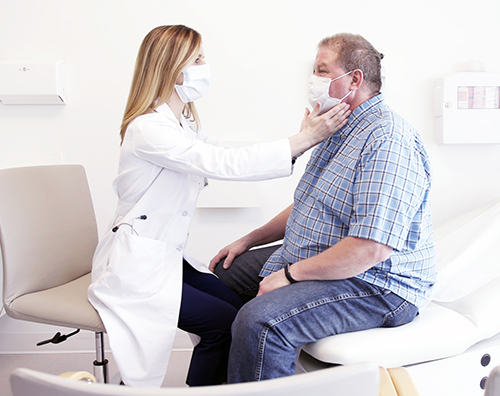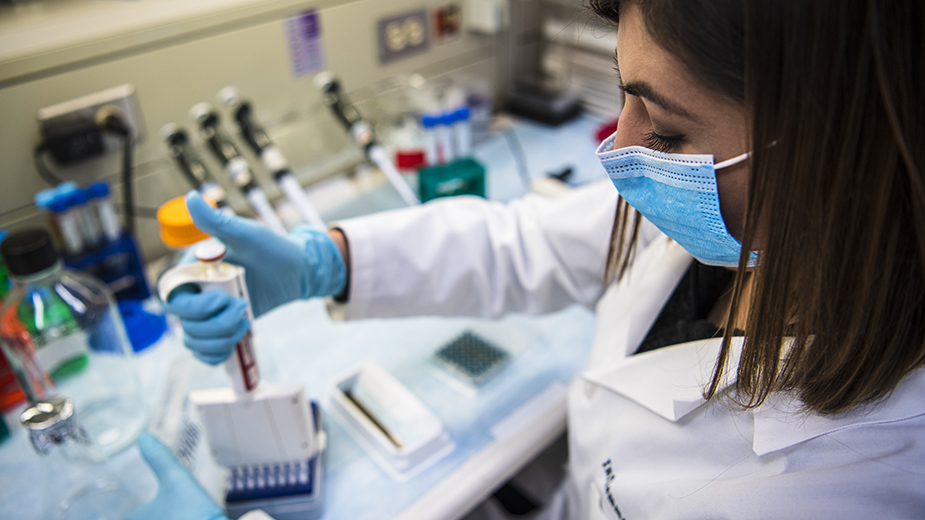CLEVELAND, Ohio – Roughly one in eight women will develop invasive breast cancer during their lifetime, according to BreastCancer.org. To treat and prevent future cases, the Cleveland Clinic Taussig Cancer Center is participating in trials that could increase the likelihood of surviving breast cancer.
Dr. Erin Roesch, a breast medical oncologist at Taussig Cancer Institute, says the clinic is among the research centers that is making significant strides in breast cancer prevention and treatment.
Of the recent trials, the Cleveland Clinic was involved in Destiny-Breast04, which began in December 2018. Dr. Halle Moore, director of the Cleveland Clinic breast program and mentor to Roesch, was among those involved in the trial.
“Destiny-Breast04 was a phase three, randomized trial enrolling patients with HER2-low advanced breast cancer,” says Roesch. “Patients had received one to two prior lines of chemotherapy in the metastatic setting.”
The trial specifically targeted those who had undergone chemo treatments and whose cancer has spread or cannot be surgically removed.
HER2-low breast cancer is a category of the disease in which patients have a low immunohistochemistry score. What this signifies is a low amount of HER2 receptor protein on the surface of cells in a breast cancer tissue, according to Roesch.
Five hundred and fifty-seven trial participants, randomly selected in a two-to-one ratio, received either the drug being tested every three weeks or a physician’s choice of chemotherapy.
The drug, trastuzumab deruxtecan, is an antibody drug conjugate that binds to the HER2 receptor on breast cancer cells, Roesch says. It allows for the chemo to separate from the antibody within the cell membrane and attack tumor cells.
“It’s a unique mechanism of action that makes an active drug in the population with HER2-low breast cancer,” Roesch says.
Some side effects, however, were found during the trial. About 12% of patients taking trastuzumab deruxtecan experienced the lung disease pneumonitis. Cardiac toxicity was also experienced more frequently in the group as opposed to the group receiving chemotherapy.

Still, the results were mostly positive, Roesch says.
“The results of Destiny-Breast04 support this therapy as being beneficial in terms of helping patients live longer and improving survival as opposed to other standard forms of chemotherapy,” she says.
Roesch says trial results essentially demonstrated that trastuzumab deruxtecan improved both progression-free survival and overall survival. After 18 months of follow-up, the drug conjugate led to a 50% reduction of disease progression or death, she notes.
“This translated to an absolute improvement in median progression free survival of 4.8 months and also a 36% reduction in the risk of death, which translates to an absolute improvement of 6.6 months,” says Roesch.
An additional trial underway at the clinic is testing a vaccine for triple negative breast cancer.
“This is a novel clinical trial we have here at the Cleveland Clinic, designed to determine the maximum tolerated dose and schedule of a breast cancer vaccine in patients with early stage, nonmetastatic, triple negative breast cancer,” says Roesch.
The first phase of the trial is ongoing and is slated to be complete in the spring 2023.
“It’s a very exciting trial,” says Roesch. “The breast cancer vaccine is the first that’s aimed at eventually preventing triple negative breast cancer from developing.”
Roesch says most breast cancer vaccines being worked on are designed to treat patients with tumors and prevent survivors from having recurrences.
“The future goal of this vaccine trial, following multiphase research studies and FDA review, is to eventually make available a vaccine that prevents triple-negative breast cancer in healthy cancer-free women at high risk for this form of breast cancer,” she says.
Triple-negative breast cancer tends to grow and spread faster, has fewer treatment options, and often a worse prognosis, according to Cancer.org.
Vincent Tuohy, a researcher with the Cleveland Clinic’s Lerner Research Institute, invented the vaccine.
“Our translational research program focuses on developing vaccines that prevent diseases we confront with age, like breast, ovarian and endometrial cancers,” he says. “If successful, these vaccines have the potential to transform the way we control adult-onset cancers and enhance life expectancy in a manner similar to the impact that the childhood vaccination program has had.”
Tuohy’s breast cancer vaccine targets a specific lactation protein, called α-lactalbumin, which the Cleveland Clinic says can be found in the majority of triple-negative breast cancers. The study includes patients who have completed treatment for early-stage triple-negative breast cancer within the past few years with a high risk or reoccurrence.
Although the testing process is predicted to take several years, Roesch says the trial is based on pre-clinical research that has been going on for many years.
“Being at the forefront of clinical trial development and research helps us bring and offer better therapy to patients,” says Roesch. “It’s really exciting to be able to talk to patients that in many cases travel distances to come here to learn about what we offer.”
Pictured at top: Employees at the Cleveland Clinic Taussig Cancer Center are participating in trials on the new breast cancer vaccine. Photo courtesy of Cleveland Clinic.
